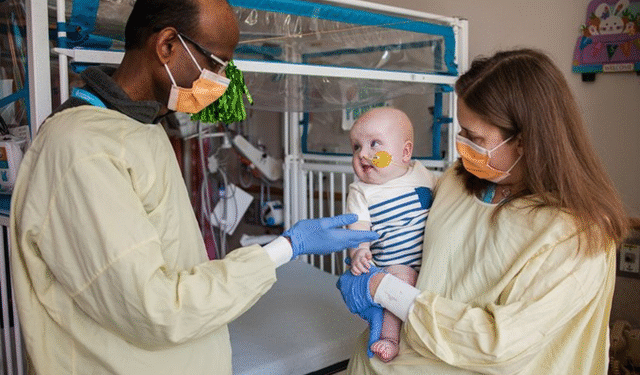In a groundbreaking medical first, doctors have successfully used CRISPR base editing to treat a rare genetic liver disorder in a baby.
The experimental treatment, carried out by researchers at the University of Pennsylvania and Children’s Hospital of Philadelphia, corrected a faulty gene responsible for carbamoyl phosphate synthetase 1 (CPS1) deficiency.
The infant, referred to as “KJ,” received the treatment at just seven months old, marking the first time CRISPR base editing has been applied in a living human with this specific mutation. Unlike traditional CRISPR methods, which cut both DNA strands, base editing precisely modifies a single letter in the genetic code, reducing risks associated with gene editing.
Following three doses, KJ showed significant improvement, with increased tolerance to dietary protein and reduced reliance on medication to manage ammonia levels in his bloodstream. While not a cure, this breakthrough paves the way for more personalised gene therapies to treat rare and life-threatening disorders.
Experts believe this success signals a promising future for genetic medicine, potentially revolutionising treatments for thousands of patients worldwide.




















